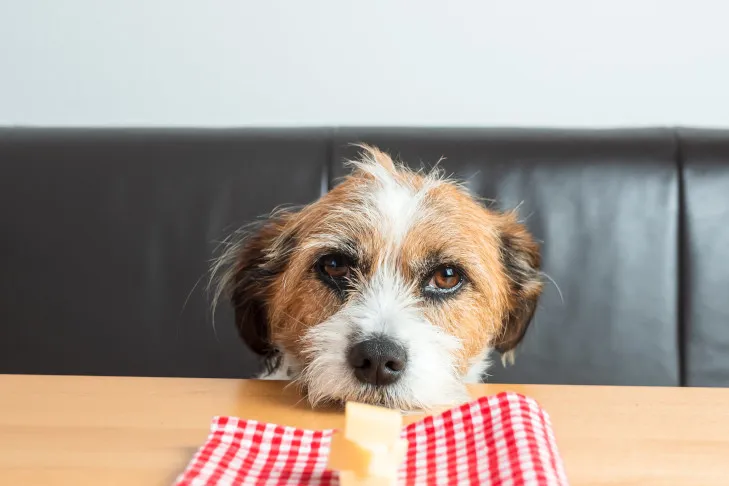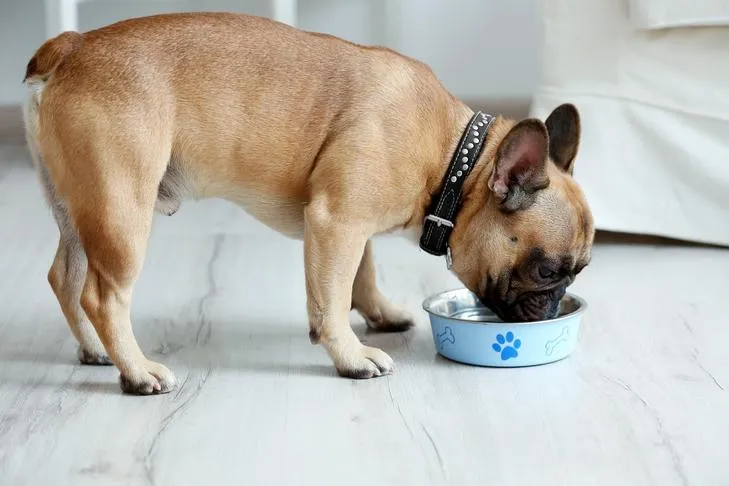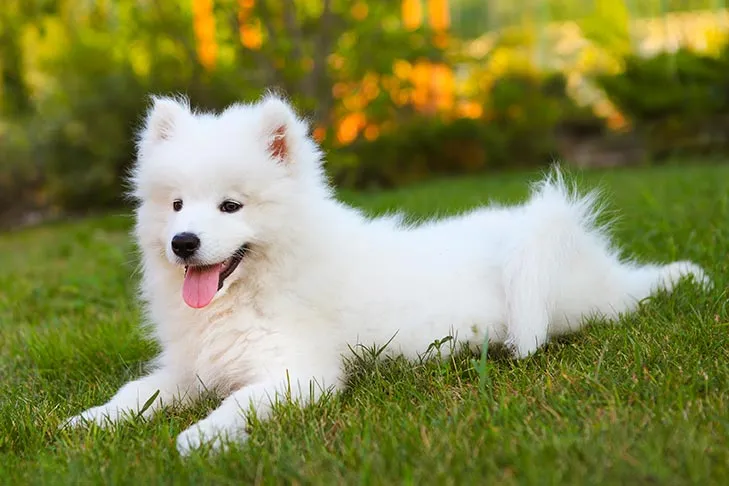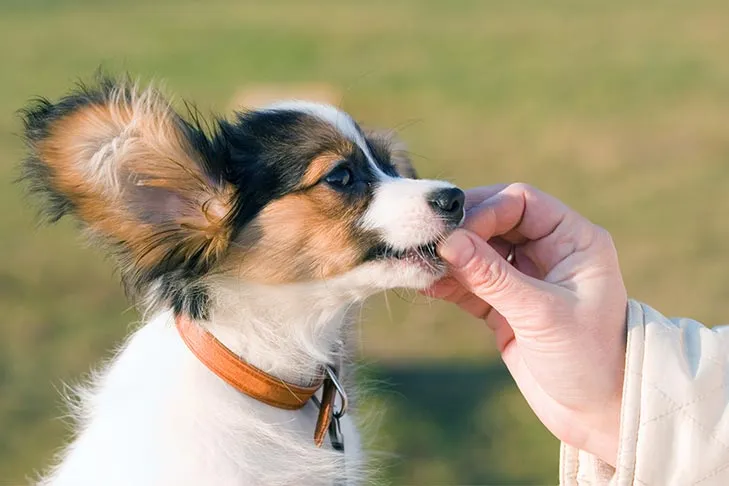As loving pet parents, it’s natural to want to share our lives – and sometimes our meals – with our canine companions. A common question that arises is, “Can Dogs Eat What Humans Eat?” While many human foods are perfectly safe and even beneficial for dogs in moderation, others can be highly toxic or cause severe digestive upset. Understanding which foods fall into each category, along with proper preparation and portion sizes, is crucial for your dog’s health and safety. This guide from Dog Care Story aims to equip you with the knowledge to make informed decisions about sharing human foods with your beloved dog, helping you navigate the complexities of their diet with confidence and care.
Understanding Your Dog’s Dietary Needs
Dogs have different nutritional requirements than humans, and their digestive systems are not designed to process all the ingredients we consume. A balanced canine diet primarily consists of protein, fat, carbohydrates, vitamins, and minerals. While commercial dog foods are formulated to meet these needs, some human foods can offer valuable nutrients and act as healthy treats. However, the key lies in understanding the specifics: plain, unprocessed foods are generally better, and certain ingredients like artificial sweeteners, excessive salt, and specific spices should always be avoided. When considering new additions to your dog’s diet, always prioritize their safety and well-being. It’s also important to be aware of what dogs should not be fed to prevent potential health issues.
Human Foods Your Dog Can Safely Enjoy
Many common household foods can be safely given to your dog as occasional treats. Remember to always introduce new foods slowly and in small quantities to monitor for any adverse reactions, and ensure they are prepared correctly.
Bread
Small quantities of plain bread are generally safe for your dog, provided it contains no harmful additives like spices, garlic, or especially raisins, which are toxic. While not offering significant nutritional benefits, a small piece of unseasoned bread won’t cause harm. Store-bought bread often contains preservatives, so homemade bread, free from extra ingredients, is a slightly better option if you choose to offer it. However, due to its high carbohydrate and calorie content, bread should be an infrequent treat to prevent weight gain.
Cashews
Cashews can be a delightful and healthy treat for dogs in moderation. They contain beneficial nutrients such as calcium, magnesium, antioxidants, and protein. However, despite being lower in fat than some other nuts, feeding too many cashews can contribute to weight gain and potentially lead to pancreatic issues. Always offer unsalted cashews, as excessive sodium is detrimental to a dog’s health. A few unsalted cashews make an excellent occasional reward.
Cheese
Many dogs adore cheese, and in small to moderate amounts, it can be a good treat. Most dogs are not lactose intolerant, but some can be, so observe your dog after introducing it. Opt for lower-fat varieties like cottage cheese or mozzarella to avoid contributing to obesity or pancreatitis, especially since many cheeses are high in fat. Cheese can be a good source of protein and calcium. Beyond human cheese, specialized dog chews made from dried Himalayan cheese are also popular and safe for canine consumption.
 Dog observing a block of cheese on a kitchen table, contemplating human foods.
Dog observing a block of cheese on a kitchen table, contemplating human foods.
Coconut
Coconut, in its various forms, offers several health benefits for dogs. The fruit contains lauric acid, which possesses antibacterial and antiviral properties, potentially aiding in combating infections. It can also help improve bad breath and alleviate certain skin conditions such as hot spots, flea allergies, and general itchy skin. Both coconut milk and coconut oil are safe for dogs. When feeding fresh coconut, ensure the hard, fibrous outer shell is removed completely, as it poses a choking hazard or can cause intestinal blockages if ingested.
Corn
Corn is a common and often beneficial ingredient found in many commercial dog foods, providing carbohydrates, fiber, and some protein. It is generally safe for dogs when prepared correctly. However, the corn cob itself is a significant hazard. Dogs cannot digest the cob, and it can cause severe intestinal blockages requiring emergency veterinary intervention. If you share corn with your dog, always ensure it is removed from the cob. For a safer alternative, a squeaky corn-shaped toy might satisfy their chewing instincts without any risk.
Eggs
Cooked eggs are an excellent addition to a dog’s diet, offering a wonderful source of protein, vitamins (A, D, E), and minerals. They can be particularly soothing for an upset stomach. It is crucial, however, that eggs are always fully cooked. Raw egg whites contain avidin, an enzyme that can interfere with the absorption of biotin, a B vitamin essential for metabolic health. Over time, feeding raw egg whites could lead to a biotin deficiency. Scrambled or boiled eggs are safe and highly palatable options for your pet.
Fish
Fish is packed with healthy fats, especially omega-3 fatty acids, and amino acids, which can significantly boost your dog’s overall health, promoting a shiny coat, healthy joints, and brain function. Salmon and sardines are particularly beneficial choices. Salmon is rich in vitamins and protein, while sardines offer readily digestible bones, providing an extra calcium boost. For all other types of fish, it is imperative to meticulously remove all tiny bones before feeding, as they can splinter and cause internal injury. Never feed your dog raw or undercooked fish; it must be fully cooked and cooled. Limit fish intake to no more than twice a week to maintain a balanced diet.
Ham
While ham is generally safe for dogs to eat, it should be offered sparingly due to its high sodium and fat content. These components can contribute to obesity, pancreatitis, and other health issues if consumed regularly or in large amounts. A very small, plain piece of cooked ham as an occasional treat is acceptable, but it should not become a regular part of their diet. Always ensure the ham is free of bones, which can splinter, and avoid any ham seasoned with onions, garlic, or other potentially toxic ingredients.
 French Bulldog enjoying a meal from its bowl, symbolizing safe dog feeding.
French Bulldog enjoying a meal from its bowl, symbolizing safe dog feeding.
Honey
Honey is a natural sweetener that also boasts numerous nutrients, including vitamin A, potassium, calcium, magnesium, copper, and powerful antioxidants. When given in small amounts, honey can even help dogs with seasonal allergies by gradually introducing small quantities of local pollen, which can help build immunity. Beyond internal consumption, the sticky consistency of honey makes it a natural antiseptic, useful as a topical treatment for minor burns and superficial cuts on a dog’s skin.
Milk
While some dogs can tolerate milk, many are lactose-intolerant, meaning they lack the enzyme needed to digest the lactose sugar in milk effectively. This can lead to digestive upset, including diarrhea, gas, and stomach pain. A small amount of milk as an occasional treat might be acceptable for some dogs, but owners should be vigilant for any signs of intolerance. Often, sticking to plain water is the safest and healthiest hydration option for most dogs.
Peanut Butter
Peanut butter is a favorite treat for many dogs and can be an excellent source of protein, heart-healthy fats, and essential vitamins such B and E, along with niacin. The healthiest choice is raw, unsalted peanut butter, free from any added sugars or artificial ingredients. It is absolutely critical to read the label carefully and ensure the peanut butter does not contain xylitol. Xylitol is a sugar substitute commonly found in “sugar-free” products and is highly toxic to dogs, capable of causing a rapid and severe drop in blood sugar, liver failure, and even death. Always verify the ingredients to keep your dog safe.
Peanuts
Unlike almonds, which can be difficult for dogs to digest, plain peanuts are safe for canine consumption. They are packed with beneficial fats and proteins that can contribute to your dog’s energy levels and overall health. As with cashews, moderation is key; too many peanuts can lead to an excessive fat intake, potentially causing pancreatic issues. Always offer unsalted, shelled peanuts to avoid too much sodium, which is difficult for dogs to process and can lead to health problems.
Popcorn
Unsalted, unbuttered, air-popped popcorn can be a fun and safe snack for your dog in moderation. It contains riboflavin and thiamine, which are beneficial for eye health and digestion, along with small amounts of iron and protein. The most important precaution is to ensure all kernels are fully popped before offering them to your dog, as unpopped kernels pose a significant choking hazard and can cause dental damage. Avoid any popcorn with seasonings, butter, or excessive salt.
Pork
Pork is a highly digestible protein source, rich in amino acids essential for muscle development and overall health. While it contains more calories per pound compared to some other meats, it can be a valuable part of a dog’s diet. Additionally, some dogs with sensitivities to other common proteins might find pork to be a less allergenic option. Ensure pork is always thoroughly cooked and served plain, without excessive fat, skin, bones, or seasonings like salt, onions, or garlic, which can be harmful.
Quinoa
Quinoa, a nutritious grain-like seed, is increasingly found in high-quality dry dog foods as a beneficial ingredient. Its robust nutritional profile, including protein, fiber, and essential amino acids, makes it a healthy and digestible alternative to more common starches like corn, wheat, and soy, which are often used in kibble. When preparing quinoa for your dog, ensure it is cooked thoroughly and served plain, without any added spices or sauces.
Salmon
As highlighted earlier, fully cooked salmon is an outstanding source of protein, healthy fats, and amino acids. These nutrients are vital for promoting healthy joints, supporting brain function, and boosting the immune system. However, the distinction between cooked and raw salmon is critical. Raw or undercooked salmon can contain parasites (specifically Nanophyetus salmincola) that can cause Salmon Poisoning Disease in dogs. This severe illness can lead to symptoms like vomiting, diarrhea, dehydration, and in extreme cases, can be fatal. Thoroughly cooking salmon completely eliminates these parasites, making it safe for your dog.
 Fluffy Samoyed puppy resting peacefully in green grass, representing healthy dog life.
Fluffy Samoyed puppy resting peacefully in green grass, representing healthy dog life.
Shrimp
Shrimp can be a safe and healthy treat for your dog when prepared correctly and offered occasionally. They are low in fat, calories, and carbohydrates, while being rich in antioxidants, vitamin B-12, and phosphorus. The most important step is to ensure shrimp are always fully cooked and that the entire shell, including the tail, head, and legs, is completely removed before feeding. Raw shrimp and shrimp shells can pose digestive problems or choking hazards.
Tuna
Dogs can consume tuna in small, controlled amounts. Cooked, fresh tuna, in moderation, provides an excellent source of omega-3 fatty acids, which are beneficial for heart health and vision. Regarding canned tuna, it generally contains small amounts of mercury and can be high in sodium, both of which should be limited in a dog’s diet. A very small portion of canned tuna prepared in water (not oil) and without any added spices can be given occasionally. However, due to potential mercury accumulation, it should not be a regular dietary staple.
Turkey
Plain, cooked turkey is a safe and lean protein source for dogs. When offering turkey, it is essential to remove all excess fat and skin, as these can be difficult for dogs to digest and may contribute to pancreatitis. Crucially, always check for and remove all bones. Poultry bones, especially when cooked, can splinter easily during digestion, leading to potential blockages or tears in the intestines, which are severe medical emergencies. Furthermore, any turkey seasoned with excessive salt, onions, or garlic should be strictly avoided.
Wheat or Grains
Contrary to popular belief, most dogs do not need to be on a grain-free diet, and grains can actually be a beneficial component of their nutrition. Grains like wheat and corn are excellent sources of protein, essential fatty acids, and dietary fiber, all vital for a dog’s health. For dogs with specific grain allergies, avoiding them is necessary, but this depends entirely on the individual dog and confirmed veterinary diagnosis. If you have concerns about grains in your dog’s diet, always consult your veterinarian for personalized recommendations regarding which vegetables are good for puppies and grains.
Yogurt
Plain yogurt can be a perfectly acceptable and healthy snack for many dogs. The active bacteria (probiotics) found in plain yogurt can help strengthen and balance the digestive system. However, as with milk, some dogs may have difficulty digesting dairy products due to lactose intolerance. If your dog tolerates it well, always opt for plain, unsweetened yogurt. Avoid any yogurts with added sugar, and especially steer clear of those containing artificial sweeteners like xylitol, which is highly toxic to dogs.
 Papillon puppy carefully accepting a safe treat from a human hand.
Papillon puppy carefully accepting a safe treat from a human hand.
Crucial Foods Your Dog MUST Avoid
While it’s helpful to know what dogs can eat, it’s even more critical to be aware of the foods that are toxic and potentially fatal for them. Always keep these items out of your dog’s reach. If you suspect your dog has ingested any of these, contact your veterinarian or an emergency animal hospital immediately. For a comprehensive list and detailed information, please refer to our articles on what vegetables to avoid for dogs and human foods dogs can’t eat.
- Chocolate: Contains theobromine, which dogs metabolize slowly, leading to toxic buildup. Dark chocolate is the most dangerous.
- Grapes & Raisins: Highly toxic, causing kidney failure. The exact mechanism is unknown, but even small amounts can be deadly.
- Xylitol: A sugar substitute found in many sugar-free products (gum, candies, peanut butter) that causes a rapid insulin release, leading to hypoglycemia, liver failure, and death.
- Onions & Garlic: Belong to the Allium family and contain compounds that can damage red blood cells, leading to anemia. This includes chives and leeks.
- Avocado: Contains persin, which can cause vomiting and diarrhea in some dogs, though the toxicity is lower than for other animals.
- Alcohol: Extremely toxic, even in small amounts, affecting the liver and brain, similar to humans but at a much lower dose.
- Caffeine: Stimulants like caffeine (coffee, tea, soda, energy drinks) can cause heart palpitations, tremors, and seizures.
- Macadamia Nuts: Can cause weakness, tremors, vomiting, and hyperthermia.
- Cooked Bones: Can splinter and cause choking, internal punctures, or blockages. Raw bones are also risky.
- Fat Trimmings & Gravy: High fat content can lead to pancreatitis.
- Raw Yeast Dough: Can expand in the stomach, causing bloating and pain, and produce alcohol as it ferments.
- Salt: Excessive amounts can lead to sodium ion poisoning, causing vomiting, diarrhea, tremors, elevated body temperature, and seizures.
- Artificial Sweeteners (other than Xylitol): While not all are immediately toxic like xylitol, they offer no nutritional value and can still upset a dog’s digestive system.
- Mushrooms: Some wild mushrooms are highly toxic and can cause liver failure or neurological problems. Assume all unknown mushrooms are dangerous.
- Pitted Fruits: Cherry, peach, plum, and apricot pits contain cyanide and can also be choking hazards or cause intestinal blockages.
Being vigilant about what vegetables a dog should not eat and other forbidden human foods is key to preventing accidental poisoning and ensuring your dog lives a long, healthy life.
General Guidelines for Feeding Human Foods to Dogs
Sharing human foods can be a delightful bonding experience, but responsible feeding practices are paramount. Here are some essential guidelines to follow:
- Moderation is Key: Human foods should always be treated as occasional treats, not a staple of your dog’s diet. Their primary nutrition should come from a high-quality, balanced dog food.
- Plain and Unseasoned: Always offer foods that are plain, cooked (if necessary), and free of any seasonings, spices, salt, sugar, oils, butter, or sauces. These additives can be harmful or contribute to weight gain.
- Check for Toxicity: Before offering any human food, always double-check if it’s safe for dogs. When in doubt, don’t feed it.
- Remove Hazards: Ensure all bones (especially cooked ones), seeds, pits, and tough skins are removed to prevent choking, intestinal blockages, or cyanide poisoning.
- Portion Control: Even healthy human foods contain calories. Account for these treats in your dog’s daily calorie intake to prevent obesity. Small pieces are always best.
- Monitor for Reactions: Introduce new foods one at a time and in very small amounts. Watch for any signs of digestive upset like vomiting, diarrhea, gas, or allergic reactions.
- Consult Your Vet: If you have any concerns about specific foods or your dog’s diet, always consult your veterinarian. They can provide personalized advice based on your dog’s health, age, and breed.
Conclusion
The question “can dogs eat what humans eat?” has a nuanced answer: yes, some foods are safe and even beneficial, while others are strictly forbidden. As responsible pet owners, our role is to be well-informed and cautious. By understanding the distinction between safe and toxic human foods, adhering to proper preparation methods, and always practicing moderation, you can safely share appropriate treats with your dog, enhancing their diet and strengthening your bond. Remember that your veterinarian is your best resource for dietary advice tailored to your dog’s individual needs. Always prioritize their health and happiness through informed choices.
References
- American Kennel Club (AKC) – Expert Advice on Dog Nutrition:
- Can Dogs Eat Bread?
- Can Dogs Eat Cashews?
- Can Dogs Eat Cheese?
- Can Dogs Eat Coconut?
- Can Dogs Eat Corn?
- Can Dogs Eat Eggs?
- Can Dogs Eat Fish?
- Can Dogs Eat Ham?
- Can Dogs Eat Honey?
- Can Dogs Drink Milk?
- Can Dogs Eat Peanut Butter?
- Can Dogs Eat Peanuts?
- Can Dogs Eat Popcorn?
- Can Dogs Eat Pork?
- Can Dogs Eat Quinoa?
- Can Dogs Eat Salmon?
- Can Dogs Eat Shrimp?
- Can Dogs Eat Tuna?
- Can Dogs Eat Turkey?
- Can Dogs Eat Wheat?
- Can Dogs Eat Yogurt?
- The Dangers of Xylitol to Dogs
- Grapes and Raisins: A Toxic Threat to Dogs
